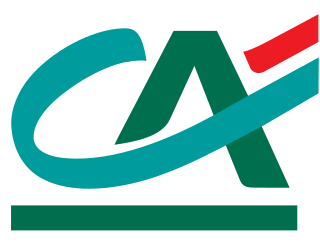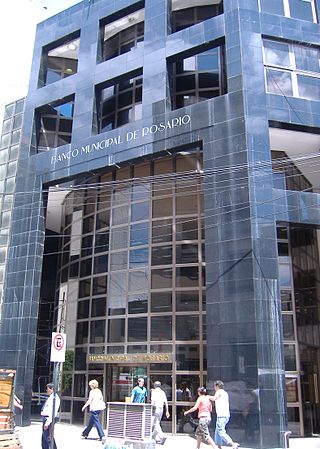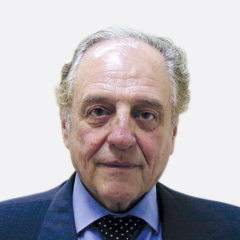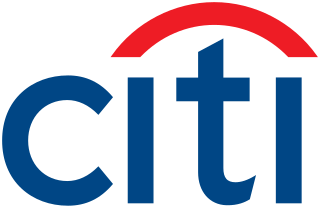
The Federal Deposit Insurance Corporation (FDIC) is a United States government corporation supplying deposit insurance to depositors in American commercial banks and savings banks. The FDIC was created by the Banking Act of 1933, enacted during the Great Depression to restore trust in the American banking system. More than one-third of banks failed in the years before the FDIC's creation, and bank runs were common. The insurance limit was initially US$2,500 per ownership category, and this has been increased several times over the years. Since the enactment of the Dodd–Frank Wall Street Reform and Consumer Protection Act in 2010, the FDIC insures deposits in member banks up to $250,000 per ownership category. FDIC insurance is backed by the full faith and credit of the government of the United States, and according to the FDIC, "since its start in 1933 no depositor has ever lost a penny of FDIC-insured funds".

A credit union is a member-owned nonprofit cooperative financial institution. They may offer financial services equivalent to those of commercial banks, such as share accounts, share draft accounts, credit cards, credit, share term certificates, and online banking. Normally, only a member of a credit union may deposit or borrow money. In several African countries, credit unions are commonly referred to as SACCOs.

Microfinance consists of financial services targeting individuals and small businesses (SMEs) who lack access to conventional banking and related services.

Crédit Agricole Group, sometimes called La banque verte, is a French international banking group and the world's largest cooperative financial institution. It is the second largest bank in France, after BNP Paribas, as well as the third largest in Europe and tenth largest in the world. It consists of a network of Crédit Agricole local banks, 39 Agricole regional banks and a central institute, the Crédit Agricole S.A.. It is listed through Crédit Agricole S.A., as an intermediate holding company, on Euronext Paris' first market and is part of the CAC 40 stock market index. Local banks of the group owned the regional banks, in turn the regional banks majority owned the S.A. via a holding company, in turn the S.A. owned part of the subsidiaries of the group, such as LCL, the Italian network and the CIB unit. It is considered to be a systemically important bank by the Financial Stability Board.

Banco de Sabadell, S.A. is a Spanish multinational financial services company headquartered in Alicante and Barcelona, Spain. It is the 4th-largest Spanish banking group. It includes several banks, brands, subsidiaries and associated banks. It is a universal bank and specialises in serving small and medium enterprises (SMEs) and the affluent with a bias towards international trade.
The main elements of Japan's financial system are much the same as those of other major industrialized nations: a commercial banking system, which accepts deposits, extends loans to businesses, and deals in foreign exchange; specialized government-owned financial institutions, which fund various sectors of the domestic economy; securities companies, which provide brokerage services, underwrite corporate and government securities, and deal in securities markets; capital markets, which offer the means to finance public and private debt and to sell residual corporate ownership; and money markets, which offer banks a source of liquidity and provide the Bank of Japan with a tool to implement monetary policy.

Banco de la Nación Argentina is a large bank in Argentina, and the largest in the country's banking sector.

Cooperative banking is retail and commercial banking organized on a cooperative basis. Cooperative banking institutions take deposits and lend money in most parts of the world.
Adolfo César Diz was an Argentine economist who was President of the Central Bank of Argentina from 1976 until 1981.

The Municipal Bank of Rosario is a bank in Rosario, province of Santa Fe, Argentina. Its central offices are located in the downtown area, on San Martín St., and there are several additional offices throughout the city. It is focused in small and medium enterprises and other organizations, especially through microcredits, and may be considered an "ethical bank".
China's banking sector had CN¥417 trillion in assets at the end of 2023. The "Big Four" state-owned commercial banks are the Bank of China, the China Construction Bank, the Industrial and Commercial Bank of China, and the Agricultural Bank of China, all of which are among the largest banks in the world as of 2018. Other notable big and also the largest banks in the world are China Merchants Bank and Ping An Bank.
Before Uganda's independence in 1962, the main banks in Uganda were Barclays ; Grindlays, Standard Bank and the Bank of Baroda from India. The currency was issued by the East African Currency Board, a London-based body. In 1966, the Bank of Uganda (BoU), which controlled the issue of currency and managed foreign exchange reserves, became the central bank and national banking regulator. The government-owned Uganda Commercial Bank and the Uganda Development Bank were launched in the 1960s. The Uganda Development Bank is a state-owned development finance institution, which channeled loans from international sources into Ugandan enterprises and administered most of the development loans made to Uganda.

The Financial Supervisory Service (FSS) is South Korea's integrated financial regulator that examines and supervises financial institutions under the broad oversight of the Financial Services Commission (FSC), the government regulatory authority staffed by civil servants.

Carlos Salomón Heller is an Argentine executive, cooperative banking leader and politician, currently serving as member of the Argentine Chamber of Deputies, representing the Autonomous City of Buenos Aires, since 2019. He is the founder and president of the Solidary Party.

Banco Macro is the second largest domestically-owned private bank in Argentina, and the sixth-largest by deposits and lending. It began operating in 1988 as a bank and has a wide network of branches and ATMs throughout the country, which allows it to provide banking services to a broad customer base.

Grupo Financiero Galicia S.A. is a financial services holding company based in Buenos Aires, and its banking operations are the fifth largest in Argentina, as well as the largest among all domestically-owned private banks in the country.

The economy of Argentina is the second-largest national economy in South America, behind Brazil. Argentina is a developing country with a highly literate population, an export-oriented agricultural sector, and a diversified industrial base.

Banco Hipotecario S.A. is a commercial bank and mortgage lender in Argentina. whose operation is based on loans with real guarantee. It was founded in 1886 to solve the housing problem. The bank was privatized in 1997. Faced with the prospect of bankruptcy, in 2005 the State became its majority shareholder. It is a public limited company, with majority state participation but private administration that is dedicated to loans and other financial activities.

Citibank Argentina is a commercial bank and financial services company and a subsidiary of Citigroup. It currently provides institutional services. In 2016, its retail operations were sold to Banco Santander Río.

Wright-Patt Credit Union (WPCU) is a US credit union or financial cooperative headquartered in Beavercreek, Ohio. The credit union was originally headquartered in Fairborn, Ohio; however, it relocated in early 2014. WPCU is registered as a state-chartered credit union, is the largest member-owned credit union in Ohio, and is one of the 50 largest credit unions in the United States. As of February 2022, WPCU has over $7.1 billion in assets, and over 446,000 members. WPCU is federally insured by the National Credit Union Administration (NCUA), which insures accounts in federal and most state-chartered credit unions in the United States. Deposits with Wright-Patt Credit Union are insured to $250,000.

















